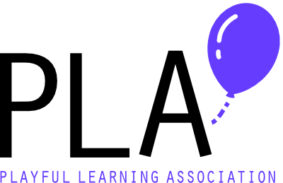The Power of Pairs
Lead Author: Ruth Torr
Additional authors:
Timetable: Wednesday Session 3: 16:00-17:00, Outdoors
Description:
This interactive workshop explores playfulness in pairs through both physical and verbal exercises. Designed to encourage experimentation, collaboration, and presence, the session is part of a broader study on intrinsic motivation in undergraduate students—specifically, the autotelic nature of play.
Over forty-five minutes, participants will explore the dynamics of connection, focusing on collaboration and the ability to let go of predetermined outcomes. This skill—being fully present without fixating on a result—is transferable to various collaborative settings, such as committee meetings, conference planning, and group assessments. Staley’s Institute of Advanced Play (2019, pp. 161-175) presents a similar concept: an alternative university where experimentation and failure are embraced, and learning is not driven by predefined objectives but by the openness to “unlearning.” This workshop immerses participants in that same space of open-ended, collaborative play.
The session begins with playful language and movement exercises, such as improvised conversations where dialogue starts with sequential letters of the alphabet, mirrored movements, and movement-based games. Alternating between verbal and physical activities is intentional, as previous iterations and participant feedback suggest that individuals often have distinct preferences.
Throughout the workshop, participants will continually switch partners, exploring new exercises with different people. The session builds toward a final activity where one partner describes or dictates the other’s actions, with leadership fluidly shifting between them—or breaking down and needing to be re-established. The key takeaway is learning to be present in partnership rather than fixating on outcomes.
My PhD research focuses on playfulness, particularly its link to intrinsic motivation in higher education. Scholars such as Piaget, Sicart, and Watton discuss the autotelic nature of play—if the player doesn’t choose to play, it isn’t play. I believe intrinsic motivation is essential for transforming university culture. If students engage in learning voluntarily, rather than as part of a transactional system (“I pay tuition, you certify my skills”—Staley, 2019, p.11), they will be more likely to explore their interests, develop curiosity, and embrace experimentation and failure.
This workshop serves as action research, recreating a mini “community of practice” (Lave and Wenger, 1991) where participants experience the joy of being present without a predetermined outcome. At the end of the session, participants will be encouraged to reflect on their experience. With their consent, these reflections may be included in my phenomenographic research, a methodology well-suited to capturing the diverse reactions elicited by this light-hearted yet insightful workshop.
Space needed: An open area where participants can slowly walk about, such as a section of a seminar room where chairs can be set to one side.
Accessibility: The activities can be easily and quickly adapted if standing and walking is not preferred.
Attire: Normal clothes can be worn.
Participants are not required to touch each other or be physically close.
Consent for harvesting the reflections will be captured from participants via a physical handout at the end.
References, web links and other resources:
Piaget, J (1962) Play, Dreams and Imitation in Childhood Norton Library New York
Sicart, M (2014) Play Matters Massachusetts Institute of Technology USA
Staley DJ (2019) Alternative Universities John Hopkins University Press USA
Watton, N (2022) Play and Learning in Adulthood: Reimagining Pedagogy and the Politics of Education Palgrave Macmillan
